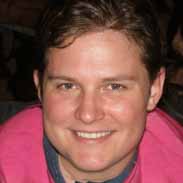Biology Chapter 9-10 Study Guide – Flashcards
Unlock all answers in this set
Unlock answersquestion
Diploid:
answer
Cell condition in which two of each type of chromosome are present.
question
Haploid:
answer
Cell condition in which only one of each type of chromosome is present.
question
Cell Division:
answer
Is the process by which a parent cell divides into two or more daughter cells
question
Replication:
answer
In eukaryotes, the point where two parental DNA strands separate to allow replication.
question
Cytokinesis:
answer
The division of the cytoplasm following mitosis or meiosis.
question
Mitosis:
answer
Process in which a parent nucleus produces two daughter nuclei, each having the same number and kinds of chromosomes as the parent nucleus.
question
Parent Cell:
answer
A cell that is the source of other cells, as a cell that divides to produce two or more daughter cells, or a stem cell that is a progenitor of other cells or is the first in a line of developing cells.
question
Daughter Cell:
answer
Either of the two cells formed when a cell undergoes cell division by mitosis. Daughter cells are genetically identical to the parent cell because they contain the same number and type of chromosomes.
question
Kinetochore:
answer
An assembly of proteins that attaches to the centromere of a chromosome during mitosis.
question
Spindle Fibers:
answer
They form a protein structure that divides the genetic material in a cell. The spindle is necessary to equally divide the chromosomes in a parental cell into two daughter cells during both types of nuclear division: mitosis and meiosis.
question
Chromatid:
answer
Following replication a chromosome consists of a pair of sister chromatids, each a single DNA helix, held together at the centromere. Following separation, each chromosome is a single chromatid.
question
Centromere:
answer
Constriction where sister chromatids of a chromosome are held together.
question
Chromosome:
answer
An observable structure that results when chromatin condenses and coils.
question
Cleavage Furrow:
answer
The final splitting of the membrane, in the process of cell division, and it occurs during the first stage of animal development.
question
Cell Plate:
answer
Structure across a dividing plant cell that signals the location of a new plasma membranes and cell walls.
question
Somatic Cells:
answer
Body cell, excludes cells that undergo meiosis and become sperm or egg.
question
Centrosome:
answer
The central microtubule organizing center of cells. In animal cells, it contains two centrioles.
question
Chromatin:
answer
Network of DNA strands and associated proteins observed within a nucleus that is not dividing.
question
Sister Chromatids:
answer
They are pieces of identical DNA that are crucial in the process of cell replication and division.
question
Carcinogen:
answer
Environmental agent that causes mutations leading to the development of cancer.
question
Apoptosis:
answer
Programmed cell death involving a cascade of specific cellular events leading to death and destruction of the cell.
question
Interphase:
answer
Is the phase of the cell cycle in which a typical cell spends most of its life. During this phase, the cell copies its DNA in preparation for mitosis.
question
G1 Stage (Growth):
answer
-Recovery from previous mitosis. -Cell increases in size. -Organelles are added. -More cell machinery made in preparation for cell division.
question
S Stage (Synthesis):
answer
DNA is replicated, each DNA strand makes identical copies of itself and they are held together by a centromere.
question
G2 Stage:
answer
Cell makes proteins needed to divide and make two new cells.
question
M (Mitotic) Stage:
answer
Occurs in the 2nd part of the cell cycle. Mitosis and Cytokinesis are included in this stage.
question
Signaling Factors:
answer
Control the stages of cell division.
question
There are checkpoints in the cell cycle:
answer
-2 (interphase) 1 (m stage) -These checkpoints are controlled by proteins called cyclins.
question
If there is a problem during a stage:
answer
-The cell can repair itself. -Apoptosis programmed self destruction controlled by enzymes called capeses.
question
4 Phases of Mitosis:
answer
-Prophase -Metaphase -Anaphase -Telophase
question
Prophase:
answer
During prophase, the complex of DNA and proteins contained in the nucleus, known as chromatin, condenses.
question
Metaphase:
answer
During metaphase, the cell's chromosomes align themselves in the middle of the cell through a type of cellular "tug of war."
question
Anaphase:
answer
The process in which the daughter chromosomes move away from each other to opposite ends of the cell.
question
Telophase:
answer
The process in which the chromatids or chromosomes move to opposite ends of the cell and two nuclei are formed.
question
Stem Cells:
answer
Early formed cells that can change into specialized cells over time.
question
2 actions using stem cells:
answer
Reproductive Cloning: A cell is turned into a new individual exactly like the one who donated the cell. Therapeutic Cloning: It uses stem cells to replace diseased cells and help people get well.
question
Cancer:
answer
The uncontrolled mitosis.
question
Benign:
answer
Non spreading, contained in sac.
question
Malignant:
answer
The power to threaten life. Spread by cells.
question
Metastasis:
answer
Spread of cancer from the place of origin throughout the body, caused by the ability of cancer cells to migrate and invade tissues.
question
Characteristics of Cancer Cells:
answer
-Cancer cells lack differentiation. -They lack a normal nuclei. -They do not undergo apoptosis. -They undergo metastasis and angiogenesis.
question
Carcinogenic Factors:
answer
-Heredity -Radiation -Pesticide -Viruses
question
Things that happen after the chromatids reach the poles:
answer
-Spindle Fibers shorten. -Cleavage Furrow forms Cytokinesis in animal cells. -Nucleus reappears. -Nucleolus reappear.



